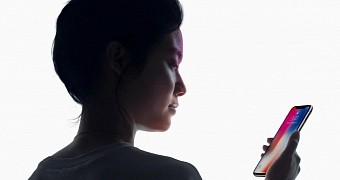Users have started complaining that the Face ID facial recognition system offered on Apple’s iPhone X is getting slower over time for no clear reason.
Face ID is one of the highlights available on the new iPhone X, and tests have shown that although on paper it’s a bit slower than Touch ID, the real-life experience is substantially improved because apps can be launched from notifications without any extra steps.
And yet, no matter how fast Face ID proves to be at first, it turns out that the feature is getting slower over time, with several users complaining on reddit that it takes longer to unlock their devices than it happened after setting up the iPhone X.
One iPhone X user explains that Face ID was so fast at first that “there wasn’t even a delay when I swiped up to unlock,” but in the last few days, it became slower “to the point where it is very noticeable” no matter the angle or light conditions. The Face ID unlock animation can be observed much more often, several users have confirmed.
No workaround just yet
Resetting Face ID doesn’t seem to make any difference, and while some believe it’s all because iPhone X owners are getting used to Face ID and expect facial recognition to work faster, others claim it all started happening after iOS update 11.1.1 was installed.
What’s important to note, however, is that this doesn’t seem to be a widespread issue and reports are still mixed at this point, with some users claiming a slowdown is indeed noticeable, but others explaining that everything is running as fast as on day one.
In some extreme cases, users point out that Face ID fails much more often than before, with two or three scan attempts necessary before successfully unlocking the device.
Apple hasn’t said a single thing about any potential slowdown impacting Face ID for the time being, but more information could be offered when the next iOS update ships to production devices.

 14 DAY TRIAL //
14 DAY TRIAL //